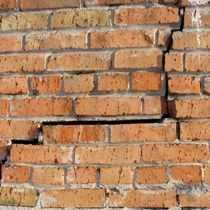
Closure of insurance
Why is an operational security insurance useful?
Hygiene and cleanliness are important, in the food industry even more than elsewhere.
But pathogens can lurk everywhere.
They are small, their legacies
however, they can be very damaging.
Everybody gets diseases every now and then.
Few diseases are so contagious,
that they have to be reported by the authorities.
However, there is epidemic danger, is fast
Action and intervention required.
Epidemic threatens, for example, in:
- salmonellae
- measles
- flu
- diphtheria
- meningitis
- hepatitis
- cholera
- anthrax
- pest
- tuberculosis
- Meat poisoning (botulism)
- rabies
- typhus
Other diseases requiring official notification are listed in the Law on Prevention and Control of Infectious Diseases in Humans.
Affected companies in the food industry can suffer serious consequences. Here an affected employee or entrepreneur is sufficient and the enterprise must interrupt its usual activity or even be closed. Namely, when all employees of the company are occupied by an official work ban. Production and trade are at a standstill. The operation is about to end. In this case, it is good if at least the financial risk of a plant closure is secured.
An operating closure insurance is recommended u. a. especially for:
- Food producing companies
- Wholesaler and retailer with food in assortment
- Restaurants, restaurants and the like more
- hospitals
- medical laboratories
What services, dangers and damages are covered by a company closure insurance?
As a special form of business interruption insurance, the business closure insurance covers the following risks:
- on-going salary payments for the employees of the establishment who are infected with the disease, are contagious and infectious, or are excretors of the disease agents and who have been officially prohibited from carrying out their business activities
- Damage caused by official or statutory disinfection and the costs thereof
- Damage caused by official closures in order to prevent the spread of disease
- Damage to goods that are disinfected or destroyed as a result of an official order
What costs will be covered by an operating closure insurance in the event of damage?
If the company has to be closed, the company closure insurance provides the following compensation:
- Substitute for the value of goods
- Paying for the costs of disinfection in order to avoid closure of the establishment (provable costs)
- Costs of making use of, recycling or destroying goods and supplies during decontamination
- Payment of agreed daily rates for disinfection work (up to three days)
- Payment of agreed daily allowances at closure (up to 30 closing days – excluding Sundays and public holidays, for example, if the company usually closed these days, sometimes the duration can be increased to 60 days)
- Costs of gross wages of employees and entrepreneurs who have been banned from work (maximum six weeks and no more than 30 times the daily allowance)
- Costs for observation and investigation services (for investigation and observation measures pursuant to § 25 (1) and § 29 IfSG)
In some cases, insurers are also responsible for damage to their image and bear the costs of advertising measures – but only if the company had to be closed for at least seven consecutive days.
However, the insurer is only insured once to pay compensation if the operation has to be officially closed due to the same circumstances or causes.
Which costs will not be covered by an operating closure insurance in case of damage?
The insurance covers many risks. However, the business closure insurance does not cover all damages and costs. The insurance cover does not include:
- Damage caused by natural events
- Damage to goods that have already been contaminated and handed over to the company
- Damage to goods that do not belong to the insured or that were acquired under reservation of title
- Damages for which the state compensates
- Damage to slaughter animals which have been declared conditionally fit or even unfit after official meat inspection (after importation or slaughter)
What depends on the contribution and what factors influence the contribution rate?
To calculate the insurance contribution is
usually based on the weekly turnover.
With it the daily maximum rate is determined.
This is usually not higher than 110%
the daily turnover resulting from the profit
and deduce the operating costs.
Related Posts
-

Cheap homeowners insurance for their four walls
Home Insurance Over 160 tariff variants without obligation compare for free The homeowners insurance – property obligations Is the conclusion of a…
-

Business administration – college darmstadt, infos here on
Business Administration The MBA program at Darmstadt Business School is tailored to meet the challenges of a dynamic global economy. It is a classical…
-

Operating cost insurance »insurance check24
Cost insurance Why is an operating cost insurance useful? Self-employed and freelancers always have a possible illness or worse injury on their backs,…
-

Business content insurance – inventory insurance »
Operating contents insurance Why is a business content insurance useful? The company content insurance is the essential form of insurance to the company…
